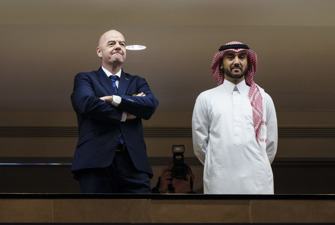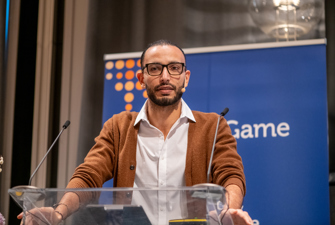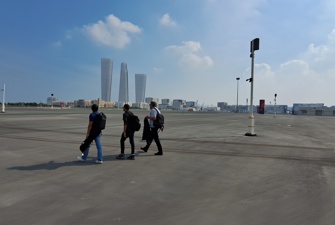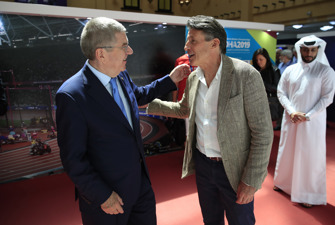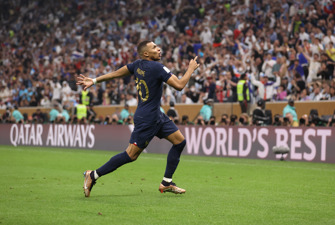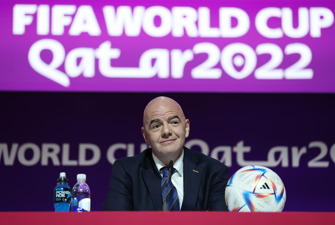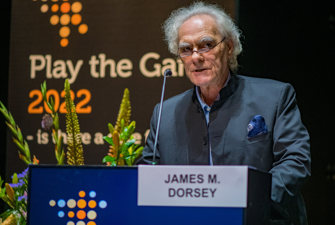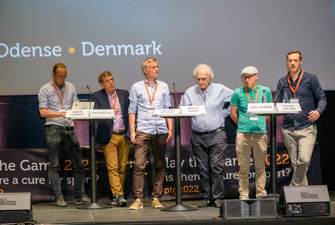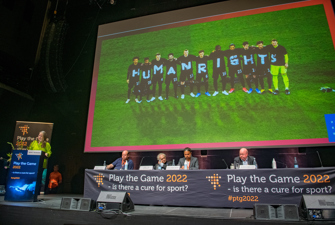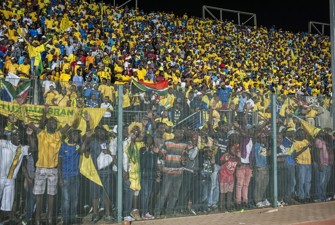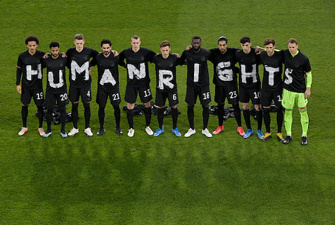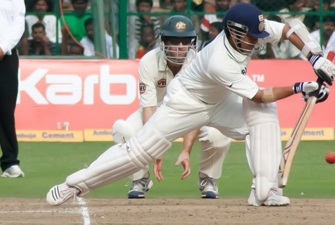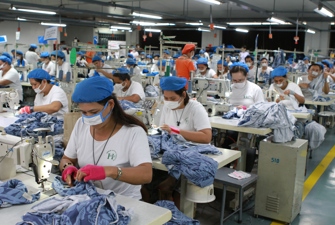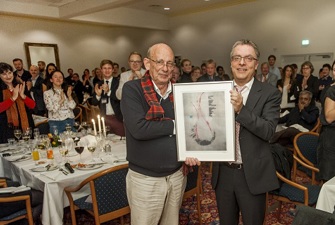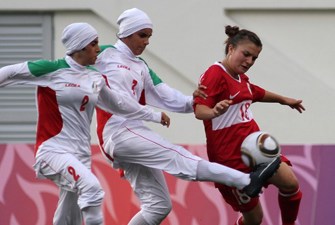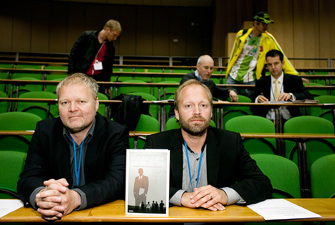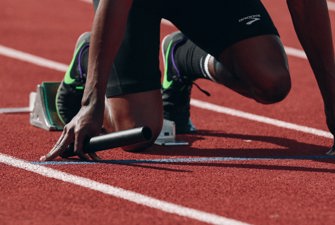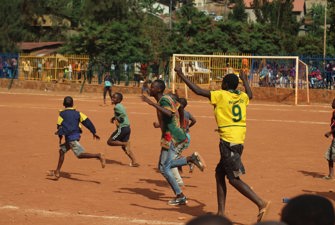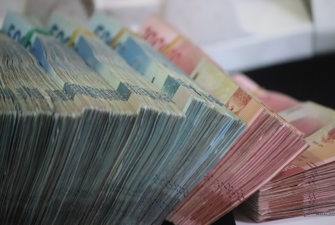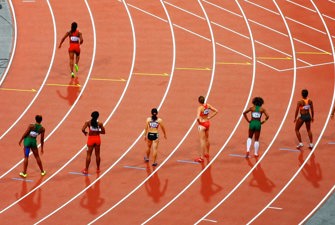Sport as a driving factor in Qatar’s National Development Strategy 2018-2022
Qatar has announced its national development strategy for 2018-2022, which has great emphasis on sport as a major factor in strengthening the country’s economic development and its image internationally. The following analysis is a summary of a bigger research conducted by the author.
In four years, Qatar will play host for the 2022 FIFA World Cup. For the first time in history, the mega-event will take place in the Arab world, making it the biggest prestige project so far for the State of Qatar after nearly two decades with an enormous commitment to hosting major sporting events. (See box on the right)
In addition to the forthcoming World Cup, Qatar is also very active in terms of direct investments in the sports industry, development of elite sports and sports diplomacy. Therefore, Qatar's focus on the sports field does not seem to be an expression of coincidence, but a deliberate strategy.
The recently launched national development strategy for 2018-2022 (NDS-2) clearly shows that the sports sector plays an important role as a driving force within three identified areas: 1) Adaptation to the global market place; 2) Improve the country’s image (soft power) and 3) contribute to the national identity as a healthy and sporting nation.
Overall the NDS-2 function as a roadmap for Qatar to achieve the National Vision 2030 that “aims at transforming Qatar into an advanced country by 2030, capable of sustaining its development and providing for a high standard of living for all of its people for generations to come”.
New economic challenges – sport as the solution
Globalization has resulted in a degradation of spatial barriers, which means that the distance from markets and raw materials becomes less relevant, and therefore the natural monopolies that previously existed due to geographical distance disappear. Each individual state has less chance of controlling multinational cash flows, and future investments will be increasingly about maximizing the attractiveness of capitalistic development in the local environment. Consequently, this has led to an increased competition among countries that are forced to find new ways to differentiate themselves to attract capital on the global market.
In the NDS-2 Qatar itself points out that the country faces major economic and developmental challenges. One of Qatar’s solutions is to invest heavily in sport, which is expected to strengthen Qatar's regional and international role and status, develop international partnerships and a competitively diversified economy that will ensure prosperity for everyone now and in the future.
This must be done through hosting sporting events and sports-related services, as well as increased productivity and economic output as a result of a healthier population. In addition, a solid governance framework for sport is essential in building a modern and progressive state. According to the Emir, the development of the individual is closely linked to developments in health, education, culture and sport, and points out that these areas cannot be developed without financial investment.
In Qatar’s sports strategy, the 2022 World Cup is highlighted as an event that will accelerate the development of Qatar’s National Vision 2030. According to a member of the Organizing Committee of the World Cup 2022 the event has ”catapulted us maybe 100 years in terms of profile, in terms of [the wider world] knowing who Qatar is, in terms of knowing where Qatar is”.
On the government's website, it is further stressed that the 2022 World Cup has created "Countless opportunities, [that] will continue to emerge (…) for individuals and businesses, inside the country and overseas." Qatar's preparation for the event has also created an “unprecedented opportunity for local, regional and international companies (…) that leaves a lasting legacy of sustainable economic, environmental, social and human development for Qatar.”
In the NDS-2 it is also emphasised that the World Cup is a big part of the urban development and that Qatar will use the event as an incentive to create more public sports facilities that will benefit the country and improve the urban environment. Furthermore, the mega-event will contribute to Qatar's environmental protection goals, where Qatar wants to make the World Cup in 2022 carbon neutral. In addition, the World Cup can support other sectorial strategies by contributing to increased green technology, diversification of income sources through the involvement of the private sector and the development of sports tourism, and promote Qatar regionally as well as internationally, create job opportunities, build capacity for the young population and create an efficient and productive workforce. As an example of Qatar’s adaption to the global market place, the NDS-2 highlights culture and sport as being “two sources of national income”.
Qatar’s sports strategy is clearly motived to use sport as a part of a national development that is highly motivated by an economic agenda where creating a flexible and healthy population fit for work and attracting economic capital is a main outcome. Thus, based on their sporting strategy, Qatar seems to view the sports industry as a way to achieve competitive advantages and increased productivity.
A search for new friendships and an improved image
It has been repeatedly stated that Qatar's major focus on sport derives from a desire to improve the country's international image and acquire ‘soft power’. The term was coined in 1990 by American political scientist Joseph Nye and describes ‘the ability to achieve goals through attraction rather than coercion’. This is clearly of high importance for Qatar and sport plays a significant role in achieving this as stated in the country’s sports strategy: "At international level, sports events and athletes help raise Qatar's regional and global profile, and results in enhanced national pride. International sport is also a powerful tool for international engagement and diplomacy through tourism, aid and trade.”
In the NDS-2 the importance of a more soft power orientated strategy is emphasised: "The State is committed to constantly promoting dialogue using soft power diplomacy initiatives in regional and international affairs (...) This strategy is based on maintaining good relations with neighbouring countries, forging strategic alliances with major powers and regional and international bodies, and advancing Qatar's image internationally."
Additionally, on the government's website, it is mentioned that sport must be used to establish friendships and improve relationships between countries around the world. In relation to this, the WC 2022 plays an important role, and the national development strategy must form the basis for the WC 2022 to be a "ringing success". The national development strategy must also ensure that Qatar is able to show the world that the country can organise a sporting event the size of the WC 2022, which according to Qatar will remain "etched in people’s minds for many decades to come". Soft power in its purest form. Another element of Qatar's use of the World Cup to boost the country's soft power is Qatar's decision to donate several of the new stadiums that have been built for the World Cup to developing countries.
Qatar’s investments in the sport industry
Qatar's search for an improved image can in particular be seen in the pursuit of hosting major sporting events such as the Olympic Games 2020 and the World Cup 2022. But Qatar's image-enhancing activities through sport also include huge investments in the sports industry.
A key player for Qatar's global sports business is Qatar Sports Investment (QSI). In 2011, QSI acquired the French football club Paris Saint-Germain (PSG) and invested in absolute world-class players such as Zlatan Ibrahimovic and David Luiz who at that time became the most expensive defender in the world. The same year, a sponsor agreement with FC Barcelona became a reality that allowed the Qatari-owned Qatar Foundation to become the first sponsor of the Barcelona shirt, also known for its worldwide popularity as the world’s most prestigious advertising space. Recently, PSG has bought Brazilian superstar Neymar for a staggering $263m, which the government proudly highlights as one of Qatar's sports achievements in 2017. The deal made Neymar the most expensive soccer player in history, but it is expected that PSG once again will make a transfer record when the loan of Kylian Mbappé expires next season.
In addition, QSI has invested in the sportswear brand BURRDA and various television rights for Al Jazeera Sport (now BeIN Sports), and in 2011 the state-owned Qatari Diar bought the Olympic city of the London Olympics in 2012. Al Jazeera is another important tool in Qatar's soft power strategy, as the most influential TV network in the Arab world with a growing global reach, thus contributing to expanding Qatar's influence beyond national boundaries. According to the New York Times, Al Jazeera is a big part of Qatar’s global outreach, which indeed has helped to change Qatar’s international image.
Qatar is also looking for influence through positioning in sports organisations at regional, continental and international levels, including the International Center of Sports Security (ICSS) and Qatar Anti-Doping Laboratory, promoting Qatar as an international protector of sports integrity in the areas of corruption, exploitation and doping.
An unintentional attention on human rights and corruption
While the above exemplifies how Qatar through sport pursues a change in its international image, it is of great importance to stress that even though some of the sporting activities will help produce soft power, the awarding of the 2022 World Cup has unintentionally drawn international attention to the state’s human rights record and allegations of corruption related to the awarding of the event.
Since being awarded the 2022 World Cup, Qatar has been subject to intense global investigation for inhumane treatment of migrant workers, particularly in the construction sector. In September 2018, a new law was introduced in Qatar, but critics claim that effective changes are yet to be seen and question Qatar’s will to change.
Amnesty International and Human Rights Watch are two of the biggest international organisations that have criticised Qatar for its reluctance to end ‘kafala’, a sponsorship system used to monitor migrant labourers from poor regions to their Qatari employers in legal and social terms. While Amnesty International sees the recent law as "an important first step towards dismantling its exploitative sponsorship system,” there is still a lot to be done, according to Stephen Cockburn, Deputy Director of the Global Issues Programme at Amnesty International.
Most recently a new investigation by Amnesty International has exposed how an engineering company involved in building infrastructure linked to the 2022 World Cup took advantage of Qatar’s kafala system to exploit migrant workers.
However, the big question is if a successful World Cup will overshadow the more negative stories? And will Qatar be able to take advantage of the event to soften their relationship with the other states in the region? Or will the World Cup just be a Potemkin village for the State of Qatar?

